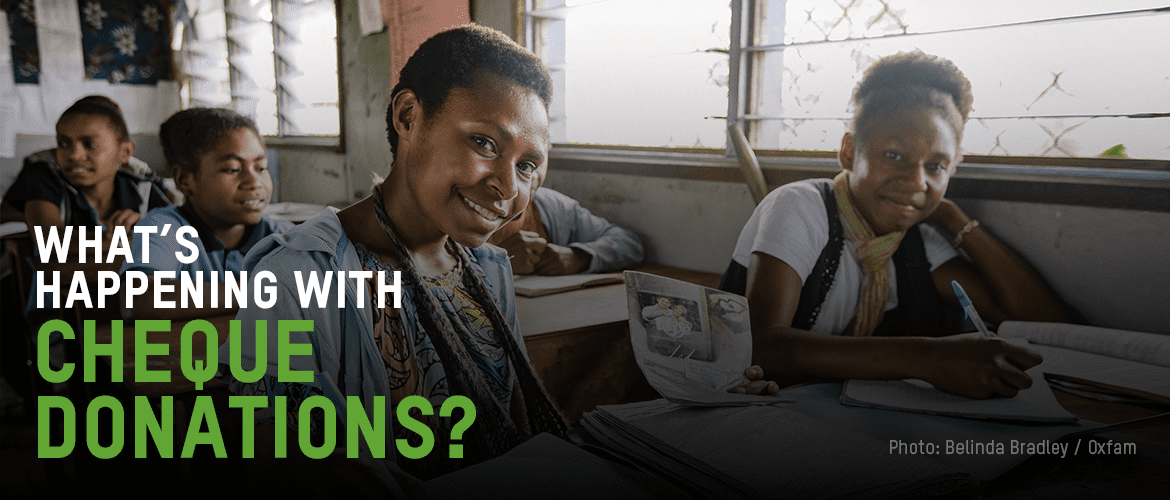
You may be aware that New Zealand banks are moving towards eliminating cheques from their services over the next year. Your support matters. We’re here to help you navigate these changes so you can continue to donate and help end poverty.
We know that you may have preferred to donate by cheque in the past. Our minds and our goal is to make this transition as smooth and as easy as possible. We want to work together to help you find a way continue giving to Oxfam that works best for you.
There are several easy and secure ways to donate:
Website: Credit and debit cards are accepted and are completely secure so your details will be protected. This is the easiest, safest and most secure way to donate. Click here to visit our general donation page
Online Banking: Log into your internet banking and make a direct donation to our bank account.
Account Number | 01-0202-0117805-04 |
| Account Name | Oxfam NZ |
Particulars | ‘Your Name’ |
Code | Your supporter number (if known), otherwise |
Reference | ‘Your Name’ |
Via Mail: Donate via cash, debit or credit card by following the instructions on any Oxfam donation form you have received.
In Person: If you would prefer to chat to our friendly supporter services call 0800 600 700 (toll free), they will guide you through a donation over the phone.





